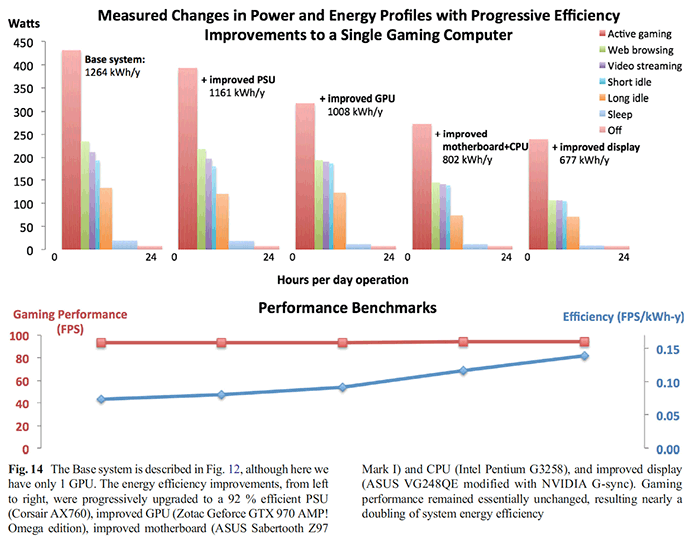In a new report from Berkeley Lab it is estimated that the world's gaming PCs will be responsible for draining the power from 50 standard 500-megawatt power plants by 2020. That's 50 Rosenfelds, fact fans. However, even now in 2015, it would be possible for the average power consumption of gaming PCs to fall by 75 per cent "by changing some settings and swapping out some components, while also improving reliability and performance," according to the research.

Berkeley Lab scientist Evan Mills co-authored an investigation of the aggregate global energy use of personal computers designed for gaming. His findings have been published in an article called 'Taming the energy use of gaming computers'. Mills looked at the amount of electricity gaming PCs are using now; they account for 2.5 per cent of global PCs but use 20 per cent of the energy used by all PCs. A typical gaming computer uses six times the amount energy of a typical PC in a year or ten times the amount used by a games console.
"When we use a computer to look at our email or tend our Facebook pages, the processor isn't working hard at all. But when you’re gaming, the processor is screaming. Plus, the power draw at that peak load is much higher and the amount of time spent in that mode is much greater than on a standard PC," said Mills. He also compard a Gaming PC's power consumption to that of three refrigerators.

With PC gaming in the ascendancy the 75 TWh of electricity used by gaming PCs globally in 2012 is expected to hit 150 TWh by 2020 unless such PCs can be designed to use less power. To see what could be done to reduce the power used by gaming PCs, without impacting on the all-important performance the researchers built five gaming PCs with varying component selections. It was found that it was possible to "achieve a 50 percent reduction in energy use while performance remained essentially unchanged."
You can see in the chart above, the impact of changes of PSU, GPU, motherboard & CPU and display. Mills concluded that "The huge bottom line here is that gamers don’t have to sacrifice performance to save energy. You can have your cake and eat it too. In fact, the efficient systems run cooler and quieter, both of which are desirable attributes among gamers." To share his findings, and perhaps help gamers save energy and money, Mills has set up a 'greening the beast' website.













